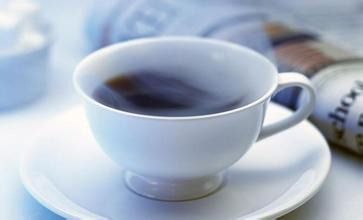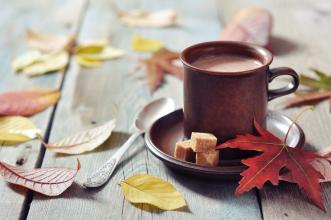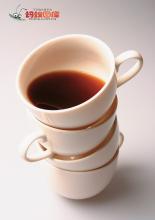El Salvador Coffee Flavor characteristics of El Salvador Coffee beans in Mercedes Manor
El Salvador is tied with Mexico and Guatemala as the producer of Asa and Meldo, and is competing with other countries for the top one or two places in Central America. Highland origin, for the size of large coffee beans, fragrant taste mild. As in Guatemala and Costa Rica, coffee in El Salvador is graded according to altitude, with the higher the altitude, the better the coffee. There are three grades according to altitude: SHB= high, HEC= medium high, CS= low.
El Salvador's unique superior variety, Pacamara, is a hybrid of Pacas-an abrupt variant of the Bourbon species found in El Salvador, with the giant bean Maragogype-an abrupt variant of the Tibica species found in Brazil.
The interesting thing about Christmas Farm coffee is that it is refined in secret, using mineral rich hot spring water to process green coffee beans. This farm is located in fertile volcanic soil and has abundant natural hot spring water, so all of this natural hot spring water is used when processing raw beans; there are many farms in the world that grow coffee, but this method is still rare.
Additional information about the spa: The water at the source is 85 degrees Celsius. Use 2-inch pipes to channel the water to six different thermal pools at different elevations. The temperature at the sixth thermal pool is 32 to 34 degrees Celsius. Then use this cooled thermal water to process coffee beans. This hot spring water flows continuously all year round. Locals drink this hot spring water. It has a pH of 8.02 and contains ingredients that sweeten coffee.
Mild Salvadoran coffee.
El Salvador is one of the small countries in Central America and has a very dense population. Its coffee flavor is characterized by excellent balance.
Today, this coffee accounts for 40% of the country's exports. The best quality coffee is exported to Germany from January to March after 35% of the extra hard beans.
In the early 1990s, guerrilla warfare greatly damaged the country's national economy, reducing coffee production from 3.5 million bags in the early 1970s to 2.5 million bags in 1990 - 1991. The eastern part of the country was most affected by guerrilla warfare, and many farmers and workers were forced to leave their estates. The shortage of funds has caused coffee production to plummet, from 1200 kilograms per hectare in the past to less than 900 kilograms per hectare today. In addition, in 1986 the Government imposed an additional 15 per cent duty on coffee exports, i.e. 15 per cent on top of the existing 30 per cent tax. Taxes, combined with unfavourable exchange rates, cause coffee exports to decline sharply, and quality to decline accordingly

Important Notice :
前街咖啡 FrontStreet Coffee has moved to new addredd:
FrontStreet Coffee Address: 315,Donghua East Road,GuangZhou
Tel:020 38364473
- Prev

The characteristics of Nicaraguan coffee beans introduction of Nicaraguan coffee beans
The fermented coffee is washed with clean water in a long sink. The workers stirred the coffee in the sink like a dragon boat with wooden boards in hand. "Why? The farther away from the sink, the cleaner the washing and the higher the quality. "are there any group members waiting at the end of the slot? The current arrives. The leader of the treatment group said with a laugh, "the heavier the beans, the better the quality, so they precipitated at the bottom of the sink a long time ago."
- Next

Panamanian Coffee Rose Summer Coffee Flavor Flavor Manor introduction to Jadeite Manor
In 1996, Blaise and Rachel visited a farm for sale in the Haramijun area of the Bocketi Valley, and was attracted by the beautiful farm and immediately bought it. This is Esmeralda. Daniel Lou, the third son of Haramiqiong Farm. It is in this farm that Mr. Bidasson has grown Geisha coffee that attracts the attention of the coffee world. Geisha pronunciation is the same as Japanese.
Related
- Does Rose Summer choose Blue, Green or Red? Detailed explanation of Rose Summer Coffee plots and Classification in Panamanian Jade Manor
- What is the difference between the origin, producing area, processing plant, cooperative and manor of coffee beans?
- How fine does the espresso powder fit? how to grind the espresso?
- Sca coffee roasting degree color card coffee roasting degree 8 roasting color values what do you mean?
- The practice of lattes: how to make lattes at home
- Introduction to Indonesian Fine Coffee beans-- Java Coffee producing area of Indonesian Arabica Coffee
- How much will the flavor of light and medium roasted rose summer be expressed? What baking level is rose summer suitable for?
- Introduction to the characteristics of washing, sun-drying or wet-planing coffee commonly used in Mantenin, Indonesia
- Price characteristics of Arabica Coffee Bean Starbucks introduction to Manning Coffee Bean Taste producing area Variety Manor
- What is the authentic Yega flavor? What are the flavor characteristics of the really excellent Yejasuffi coffee beans?

